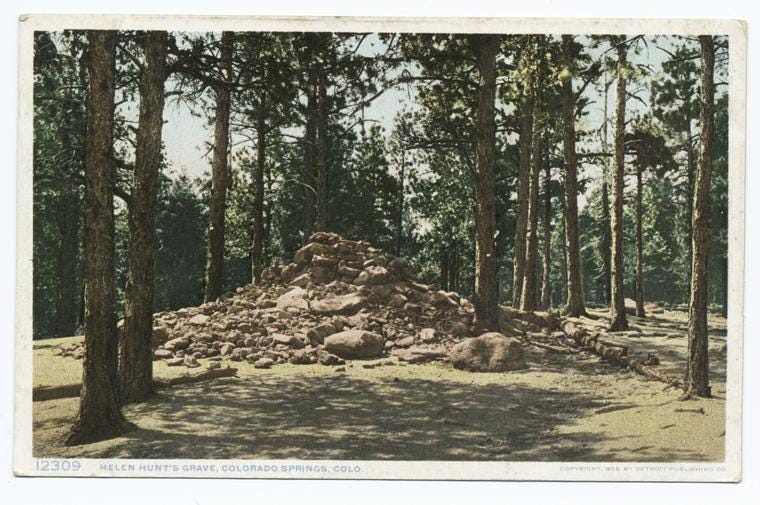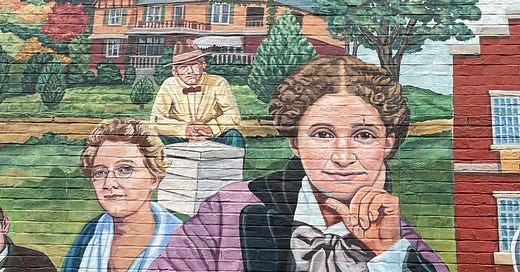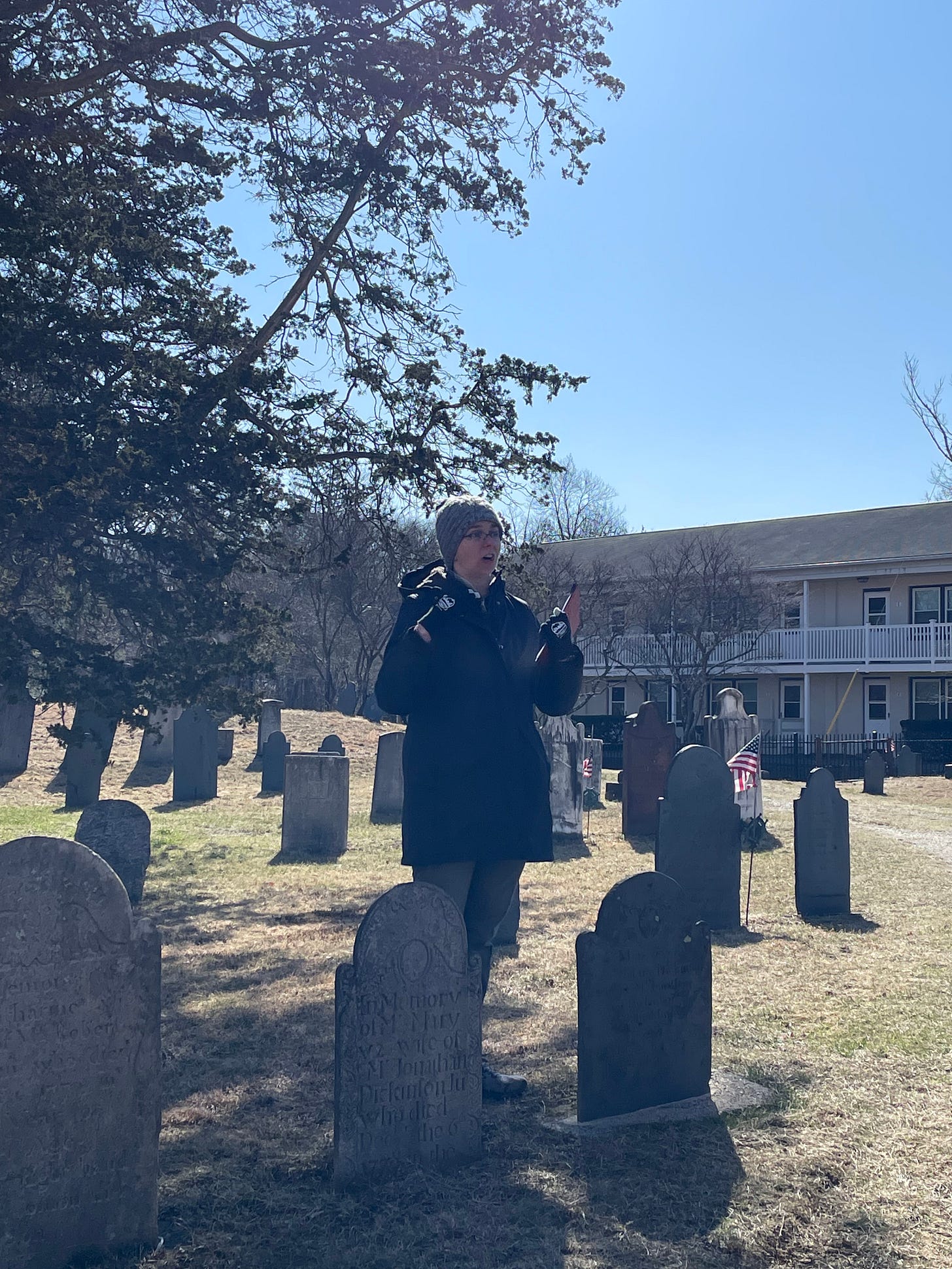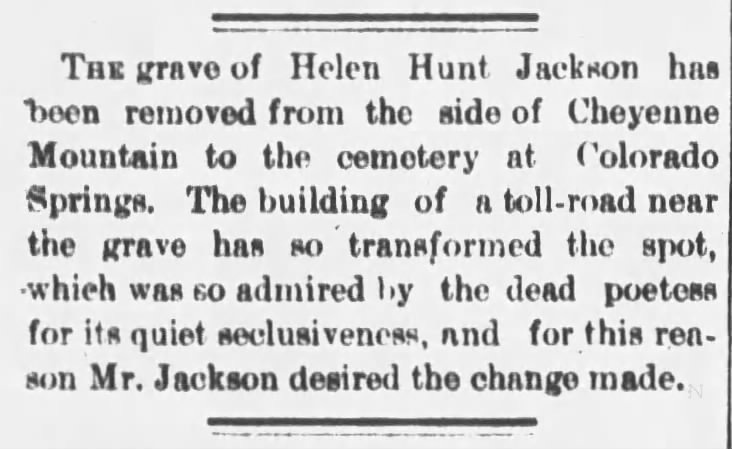If you’ve been following along the last couple of weeks, you know I’ve been planning a Women’s History Walk at West Cemetery in Amherst, which I debuted to family and friends this past weekend. There was a great turnout despite the chilly morning, and it felt awesome to be guiding people around a cemetery again!
Helen Hunt Jackson
On a wall adjacent to West Cemetery, there’s a mural highlighting key figures in the town’s history. For the tour, this allowed me talk about women from Amherst who aren’t buried in the cemetery like Helen Hunt Jackson.
A writer and activist, Helen was born and raised in Amherst but eventually moved out West. She’s known for the popular novel Ramona (1884) as well as a non-fiction book about the mistreatment of indigenous groups in the United States called A Century of Dishonor (1881).
A postcard from the past
Over a decade ago now, I was shopping at an antique store when I came across a postcard about Helen Hunt Jackson. It included a short description of her efforts on behalf of indigenous people, and I ended up buying the postcard because I found her story so inspiring. I’m not sure whether that postcard is still in my possession, but when I moved to Amherst and visited the home where she was born, I recalled her story and the connection I’d felt to her work.
In an effort to locate the postcard, I searched the New York Public Library’s Digital Collections (this is such an amazing resource, especially for finding materials in the public domain). One of the postcard images I came across was the site of Helen Hunt Jackson’s grave in Colorado.

I then went to Find a Grave to figure out more about the location of her burial, but the information available there didn’t match what was shown on the postcard.
Remains removed
This inspired yet another search, this time on newspapers.com, where I discovered that about six years after her death, Helen Hunt Jackson’s remains were removed from the burial site depicted in the postcard and reinterred in Evergreen Cemetery in Colorado Springs.
Base and vulgar tourists
A news article credited to the Philadelphia Press that was printed in multiple papers across the country, including The Ontario Record in Ontario, California, on December 23, 1891, outlined several reasons Helen Hunt Jackson’s remains were moved. Apparently, the site attracted a lot of “thoughtless tourists” who left visiting cards, the remains of their lunches, and other litter, disrupting the wild look of the place that Jackson had loved. A speculator had purchased land nearby and was profiting off of Jackson’s burial site by charging a toll to visitors. Finally, the article notes that
“…some vulgar tourists, being base as well as vulgar, indulged in unseemly orgies there.”
I’m assuming in 1891 the use of the term orgy would have evoked images of drunken revelry in readers’ minds rather than a sex party, but as a reader in 2025, I can’t help but look at the postcard of Helen Hunt Jackson’s mountainside grave a bit differently. The news article ends with this question that feels as relevant today as I’m sure it was in 1891:
“Is nothing which is beautiful and poetical in this land longer safe from the profaning touch of Philistinism?”








I really wonder what she would have thought of the parties!
I so enjoyed this.
I, too, collect postcards and understand the want to know more about either the subject of the card or the writing on the reverse side that lends itself to history happening at the time the card was written.
It’s really wild to realize how low people will go .
Drunken orgies aside.. I know that’s bad..
But I think the more insulting thing is the person who created a toll road and was charging people for entrance to her grave!
I can’t even imagine the brass.
Such actions still flabbergast me even though we see similar obtuse behavior time and time again when looking at historical records in general.